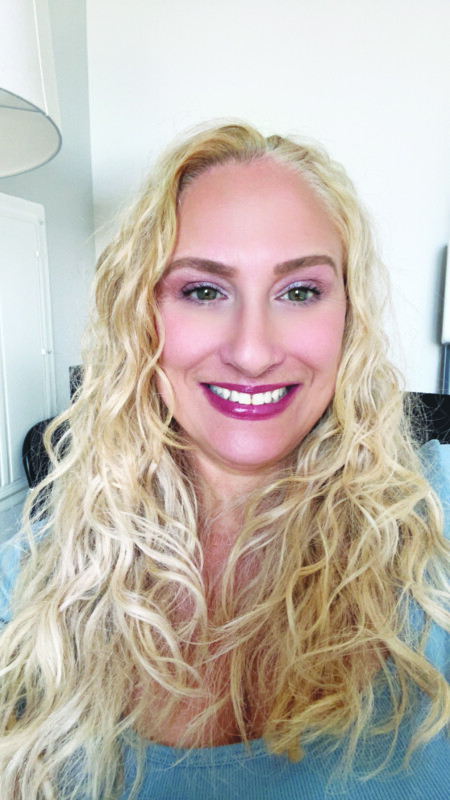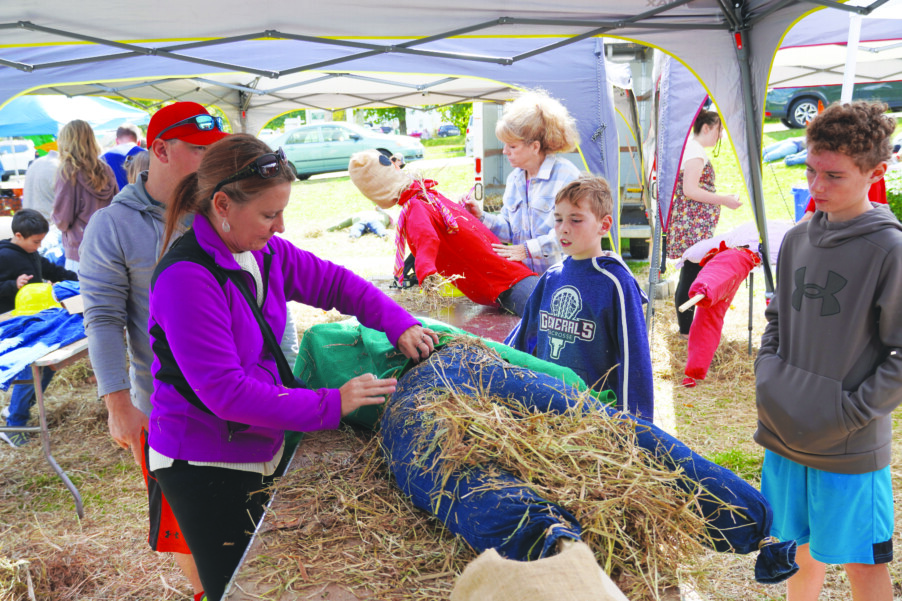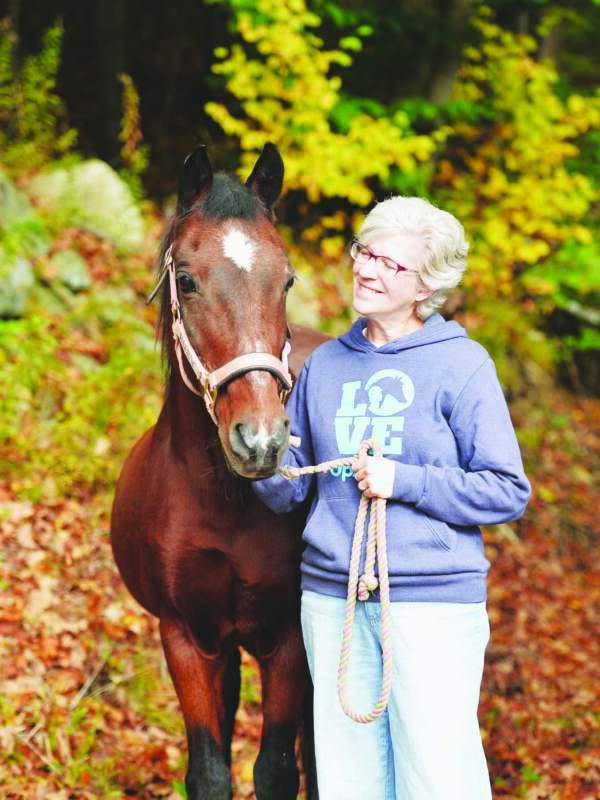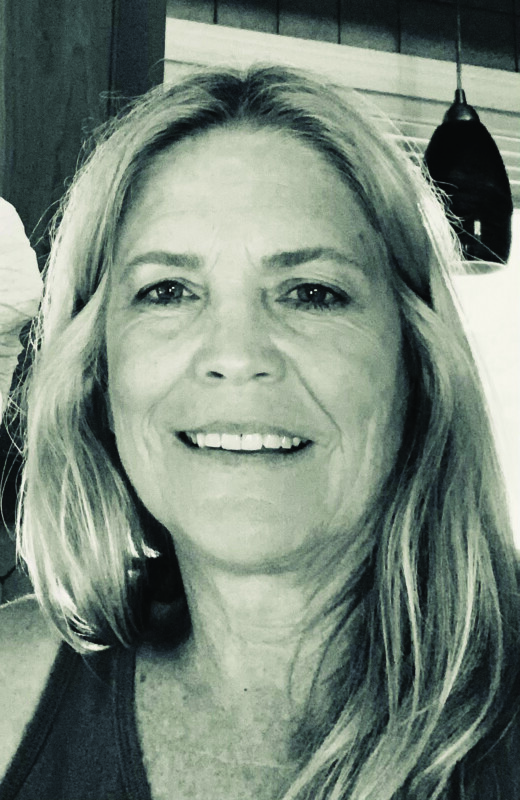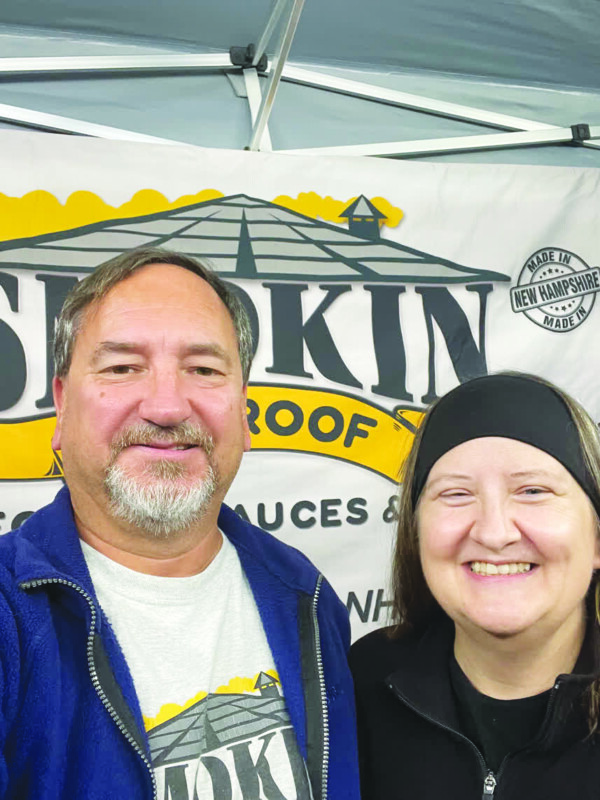It’s Milford Pumpkin Festival weekend
The Milford Pumpkin Festival has been going strong for 35 years thanks to the region’s hearty pumpkins and even heartier volunteers. The Granite Town Festivities Committee in partnership with the Milford Lions Club and Milford Rotary put on the event, which includes a giant pumpkin contest, a mural to be created by local artist Eric Escobar, face painting, tons of food, beer, music and much more. Wendy Mace, who is in charge of marketing for the Granite Town Festivities Committee after being a longtime volunteer, spoke to the Hippo about the upcoming festival, which runs from Friday, Oct. 11, through Sunday, Oct. 13.
How did the festival get started?
I think it started with Marilyn Kenison back 35 years ago. I think this woman just had an idea and that was the one that got it started. Her husband was a dentist in town. I know way back then the Milford Cooperative Bank was involved with volunteers, because my mom was working there at the time and she was in the very first group for a few years when it got started. It’s changed over the years until this last group of volunteers in 2018 decided to form the Granite Town Festivities Committee, which is a nonprofit. They’re the ones that are keeping it going now. Some of the players have changed over the years … but it’s all volunteers and sponsorships that keep it going. The festival is a huge undertaking. It’s a bazillion volunteers that make this happen. Organizing it, setting it up, working at it, breaking it down.
What is the opening ceremony like and what is the Citizen of the Year?
Well, they do that on Friday night. The Rotary has spearheaded having townspeople vote on Citizen of the Year and they make the announcement Friday night at the ceremony. There’s also a pumpkin runner who comes in and there’s a ceremonial lighting of the pumpkin, which is a huge jack-o’-lantern up in the town hall window, and the pumpkin runner brings it to the fireman, and the fireman goes up the ladder. Basically, they’re turning on a giant jack-o’-lantern. People get a big kick out of that. That’s part of the opening ceremonies…. And I think the president of the Granite Town Festivities Committee will be speaking this year.
What is the pumpkin catapult?
That’s put on by the Dollars for Scholars. They have actually built this catapult they put down at Railroad Pond behind TD Bank. People purchase a pumpkin and they catapult it into the pond. It’s pretty fun to watch. And they have like, I think they had, when I went down there to look at it, scarecrows as markers out in the pond that they shoot for, but it’s just kind of a fun thing to watch.
What is the Haunted Trail?
The big draw is the Haunted Trail at Emerson Park that’s open Friday and Saturday night.
It’s been built by Witches Spring. … and people buy a little ticket and they get to walk through the trail that runs at the back of Emerson Park along the river in the area between the park and the Boys & Girls Club. So they’ve made this cool little haunted trail back there that’s changed over the years too. The first haunted trail we did was in plastic, a plastic maze on the tennis courts at Keyes Field … and it was basically a maze of fog, but then it’s changed over the years. We actually had a haunted house in a creepy old apartment that somebody let us use, which was really creepy. We put it on at different places. And then they started doing the trail behind Emerson Park a while back. And now we have this great company, he’s a local guy that comes in and he builds all that stuff and builds the trail. We get a lot of volunteers from the Masons, they get to be some of the haunts. They’re involved, Oddfellows are involved, because the Masonic Temple is also back there. They’re also the ones that keep an eye on everything overnight, our gourd guards. They keep an eye on everything to make sure nothing gets vandalized overnight on Friday and Saturday nights.
What are some of your favorite kids’ activities that are at the event?
We have carving pumpkins on the Oval. You can paint a pumpkin…. You can make scarecrows. And that always cracks me up because then you see little families walking down the street with a scarecrow over their shoulder. It’s really fun. … And the town hall, there’s a whole craft show going on, artisan and craft fair going on inside the town hall. So there’s stuff there for all ages. The kids love the Haunted Trail as well. And there’s all kinds of vendors and food trucks and there’s always vendors that have special things that kids enjoy but it’s nice to have the town hall where we have more grown-up crafts and things. If you’re going to make a scarecrow or paint a pumpkin or carve a pumpkin or go to the haunted trail, there are fees for that, but they’re very nominal. And then people who are selling things. The Milford Ambulance has a little ducky race where you purchase those little rubber ducks.
How many people do you think will show up this year and where will they put their cars?
I think in the years past that they have guessed that there’s been like 70,000 people over the course of the three days. The Milford Union Square is completely shut down for this festival this year so people can park at the middle school and the high school, and we have shuttle buses that keep going back and forth. They go from the schools, they drop them off downtown, they go back and forth … so people don’t have to worry about parking because there’s plenty of parking at the schools and we’ll shuttle them right down to the festival. It goes right till the end of each night except Sunday where the festival ends, it’ll go for like a half an hour or so after. All that information is on our website; what roads are closed, where the parking is, and everything. —Zachary Lewis
35th Milford Pumpkin Festival
When: Friday, Oct. 11, from 5 to 9 p.m.; Saturday, Oct. 12, from 10 a.m. to 9 p.m.; Sunday, Oct. 13, from 10 a.m. to 3 p.m. Rain or shine.
Info: milfordpumpkinfestival.org
Schedule of events
Opening Ceremony & Citizen of The Year Presentation
Friday, Oct. 11, 6:30 to 7 p.m. on the Oval Stage
Includes Pumpkin Runner & lighting of the Town Hall Pumpkin
The Great Pumpkin Weigh Off/Giant Pumpkins On Display: All entries for the Weigh Off must be delivered to the Milford Oval by 9 a.m. Saturday, Oct. 12. Winners are announced at noon on Saturday. Pumpkins must stay for the duration of the Festival.
Milford Historical Walking Tour: Saturday and Sunday, one-hour guided tour begins at the Carey House, 6 Union St.
Pumpkin Painting, Scarecrow Making, Face Painting: Saturday 10 a.m. to 3:30 p.m. and Sunday 10 a.m. to 3 p.m. at the Community House lawn. Pumpkin painting $5 per pumpkin. Scarecrow making $15 per scarecrow. Face painting $5 full face, $1 one cheek
Beer, Wine & Spirits Tasting: Friday and Saturday 5:30 to 8:30 p.m. Community House Lawn, tickets required
Boys & Girls Club of Souhegan Valley Pumpkinfest 5K & Kids Fun Run: Saturday 7:30 to 11:30 a.m., 56 Mont Vernon St. Registration opens 7 a.m. Kids Fun Run 8 a.m., $10. 5K Run/Walk 9 a.m., $35 ($40 day of)
Pumpkin Carving & Lighting Display On The Oval: Saturday 11 a.m. to 5 p.m., $12 per pumpkin
Rubber Duck Race: Sunday at 1 p.m., Stone Bridge; purchase rubber ducks at the Milford Ambulance booth on Middle Street
Pumpkin Catapult: Saturday 9 a.m. to 6 p.m., Sunday 9:30 a.m. to 2:30 p.m., at Railroad Pond, TD Bank Lower Lot. Purchase pumpkins and catapult them toward fun targets in Railroad Pond. One pumpkin $3, two pumpkins $5. Proceeds benefit Dollars For Scholars.
Star Gazing/Solar Observing: Saturday evening, weather permitting, in Keyes Memorial Park, join Rich DeMidio and other amateur astronomers for stargazing and solar observing. Several telescopes available for astronomical viewing including some planet and deep sky objects.
Pumpkin Festival Mural: Watch Eric Escobar’s creation unfold over the 3 days of the festival
Featured image: Stuffing a scarecrow. Courtesy photo.

